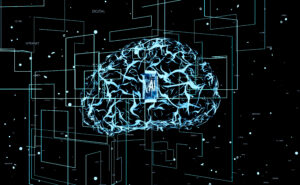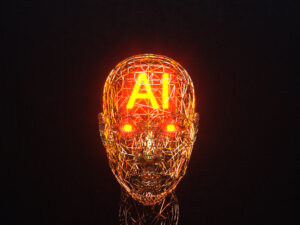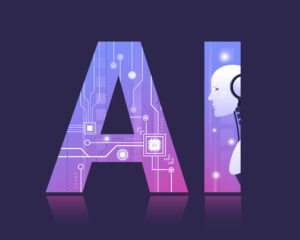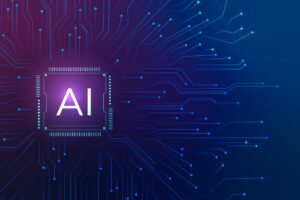
Exploring Worldcoin: Implications for Privacy
This innovative cryptocurrency relies on an orb-shaped device designed to scan individuals’ irises in exchange for tokens. While this technology presents exciting possibilities, it also raises important questions about the potential costs and implications for privacy.

OpenAI’s CEO, Sam Altman, recently introduced Worldcoin, a cryptocurrency project with a unique approach. It rewards individuals with a crypto token called WLD simply for being themselves. This project has a dual purpose: to serve as a global universal basic income initiative and to function as an authentication system to differentiate between humans and robots.
During its beta phase, Worldcoin has already amassed an impressive 2 million users. Now, with its official launch, the project is expanding its “orbing” operations to cover 35 cities in 20 different countries. Participants in select countries will be eligible to receive the WLD cryptocurrency token as an incentive.
Despite its potential, Worldcoin has faced criticism from tech experts who are concerned about the privacy risks associated with collecting biometric data.
Here’s a breakdown of what you need to know about Worldcoin:
What is Worldcoin?
Worldcoin is set to distinguish itself from leading cryptocurrencies like Bitcoin and Ethereum by offering people a future currency token without requiring any financial investment. Founded by Sam Altman and Alex Blania, Worldcoin aims to function as a form of universal basic income, striving to create more equitable access to the global economy.
To acquire a Worldcoin token, individuals must go through a unique process. They need to have their irises scanned using an orb-shaped device, which serves as a means of confirming that the person is human and registering only one account per individual.
Jeremy Clark from the Concordia Institute for Information Systems Engineering in Canada highlighted that while anyone can use cryptocurrencies like Bitcoin, Worldcoin is attempting to provide one distinct address to every person on Earth, ensuring uniqueness.
According to the Worldcoin website, the only data stored by the orb is an “IrisHash,” a set of numbers used for individual identification, with no storage of biometric data. Furthermore, any images collected by the Orb are promptly deleted unless explicitly requested by the person signing up, as stated by a Worldcoin spokesperson.
Upon receiving their unique IrisHash and cryptocurrency wallet, individuals are granted a “World ID” or digital passport.
The use of biometrics and digital IDs is becoming increasingly common worldwide, allowing people to access essential services like healthcare, food banks, and even voting, from Afghanistan to Britain. Worldcoin has conducted orb testing in various countries, including Sudan, Chile, and Indonesia, and intends to make its World App available in more than 80 countries.
How has the project been received?
Sam Altman and OpenAI, known for creating ChatGPT, have been garnering attention in the ever-expanding field of artificial intelligence, especially since late last year.
Worldcoin has also been successful in attracting investments from major Silicon Valley venture capital firms, including Andreessen Horowitz and Blockchain Capital. Initially critical of the project, Spencer Bogart from Blockchain Capital has changed his perspective, acknowledging that Worldcoin offers a compelling solution to sybil attacks, which involve hackers creating multiple fake identities to take control of an online network.
According to the company’s website, Worldcoin is an Ethereum-based digital currency that aims to be collectively owned and distributed fairly to as many individuals as possible.
However, despite its noble goals, experts in the tech industry point out that Worldcoin is not immune to the volatility commonly associated with other cryptocurrencies. Peter Howson, a crypto expert from Britain’s Northumbria University, noted that there is no guarantee that any company will accept Worldcoin as payment, and its practical usability remains uncertain.
What does it mean for users' privacy?
Worldcoin has faced significant criticism regarding its handling of biometric data.
Edward Snowden, the former U.S. intelligence contractor, expressed concerns over the project when it was introduced by Sam Altman in 2021, cautioning against “cataloging eyeballs.”
MIT Technology Review conducted an investigation that raised red flags about Worldcoin’s collection of biometric data from developing countries during project testing, including Indonesia, Kenya, and Colombia. The investigation revealed that the company had used deceptive marketing practices, gathered more personal data than disclosed, and failed to obtain meaningful informed consent from users.
Molly White, a crypto researcher, noted that such testing is indicative of a broader tech industry practice of experimenting on communities with limited agency, potentially coercing them into participating in projects.
Peter Howson emphasized the substantial amount of data that prospective users have to provide, highlighting the long-term consequences of data breaches.
According to a Gizmodo report, individuals in China were reportedly purchasing iris scans on the black market to gain access to the Worldcoin beta network, which offers KYC verifications for the World App.
Worldcoin has stated its commitment to protecting users’ privacy, with plans to anonymize and destroy biometric data once its systems are optimized. However, the company has not provided a specific deadline for data deletion.
A Worldcoin spokesperson clarified that the only personal data leaving the Orb is a message containing a numerical representation of the most critical iris features, known as the iris code, which is used to verify uniqueness.
Never miss any important news. Subscribe to our newsletter.
Related News


British Investor Who Predicted US Slump Warns of Next Crash

I’m a Death Doula: 4 Reasons I Believe Death Isn’t the End


Tech to Reverse Climate Change & Revive Extinct Species

AI Unlocks the Brain’s Intelligence Pathways

XPENG Unveils Iron Robot with 60 Human-like Joints

Can AI Outsmart Humanity?

11 ChatGPT Prompts to Boost Your Personal Brand

Keir Starmer Hints at Possible Tax Hikes on Asset Income

Navigating the Future of AI: Insights from Eric Schmidt
